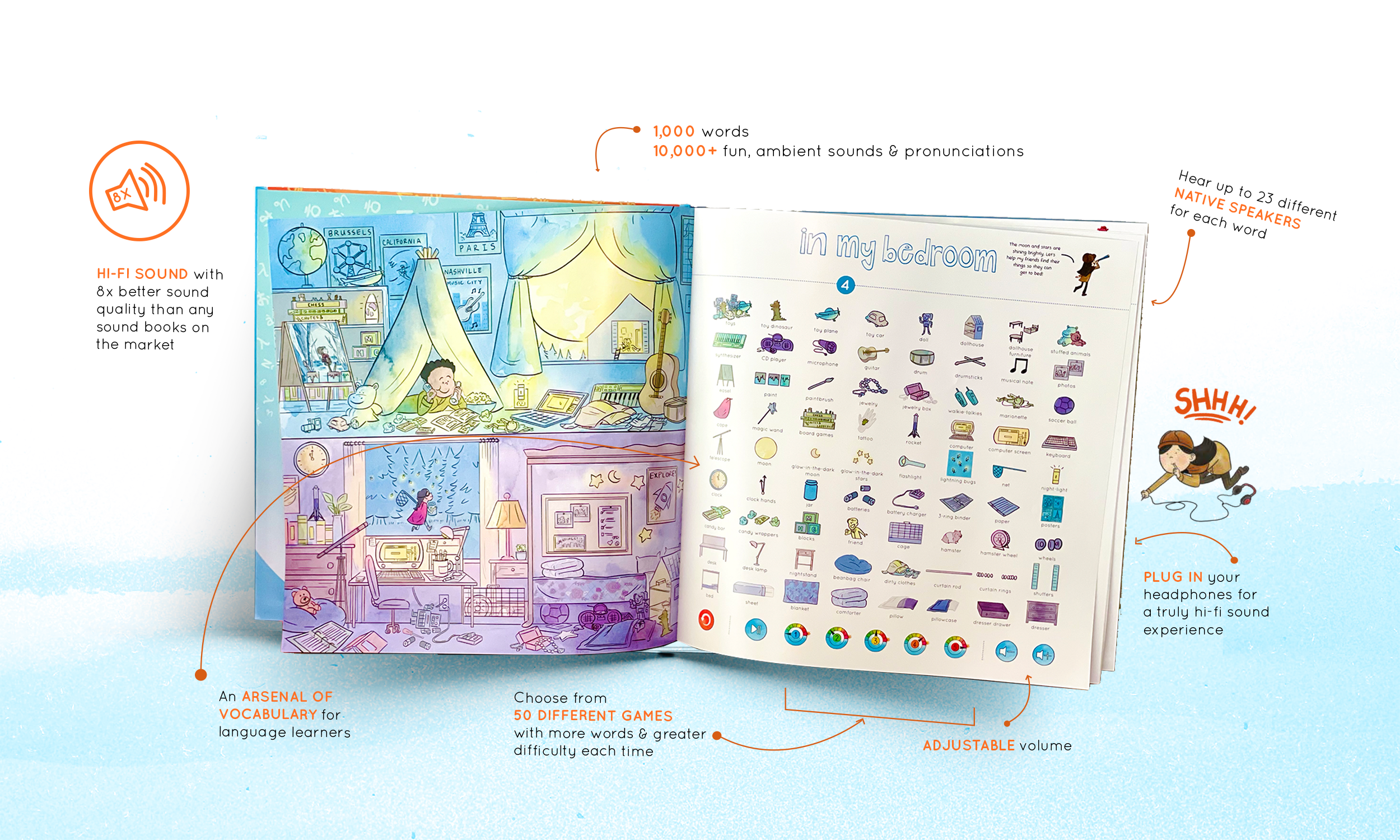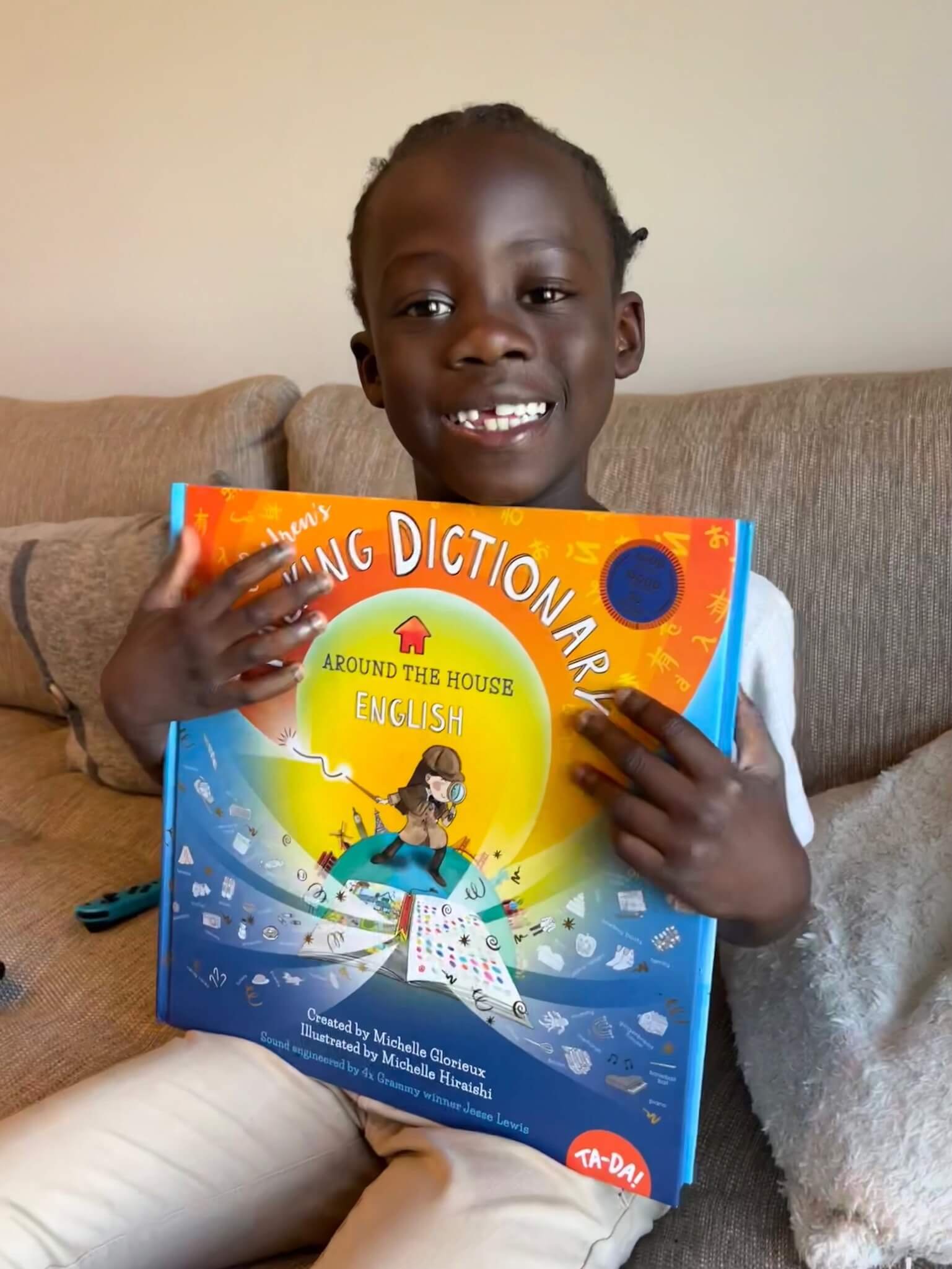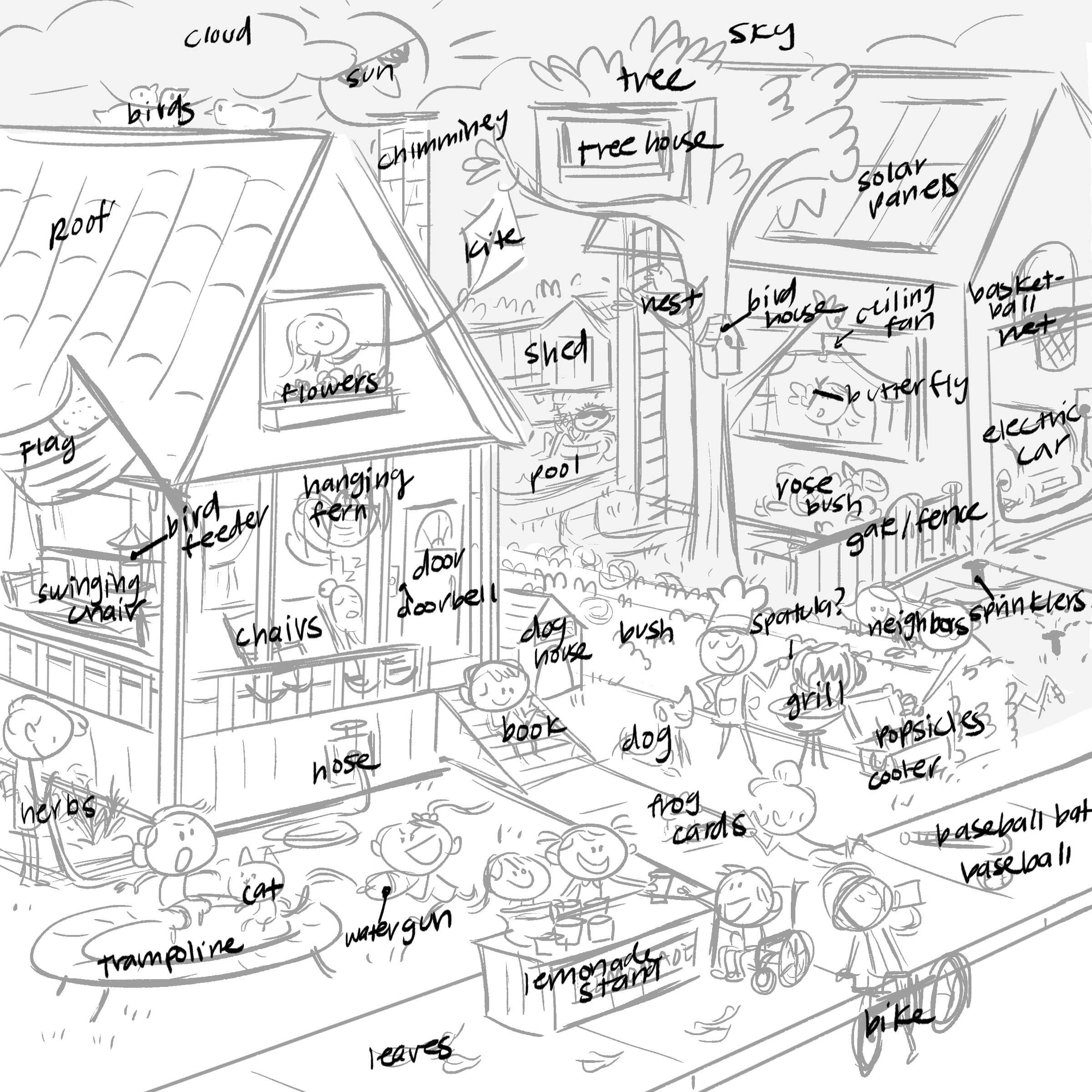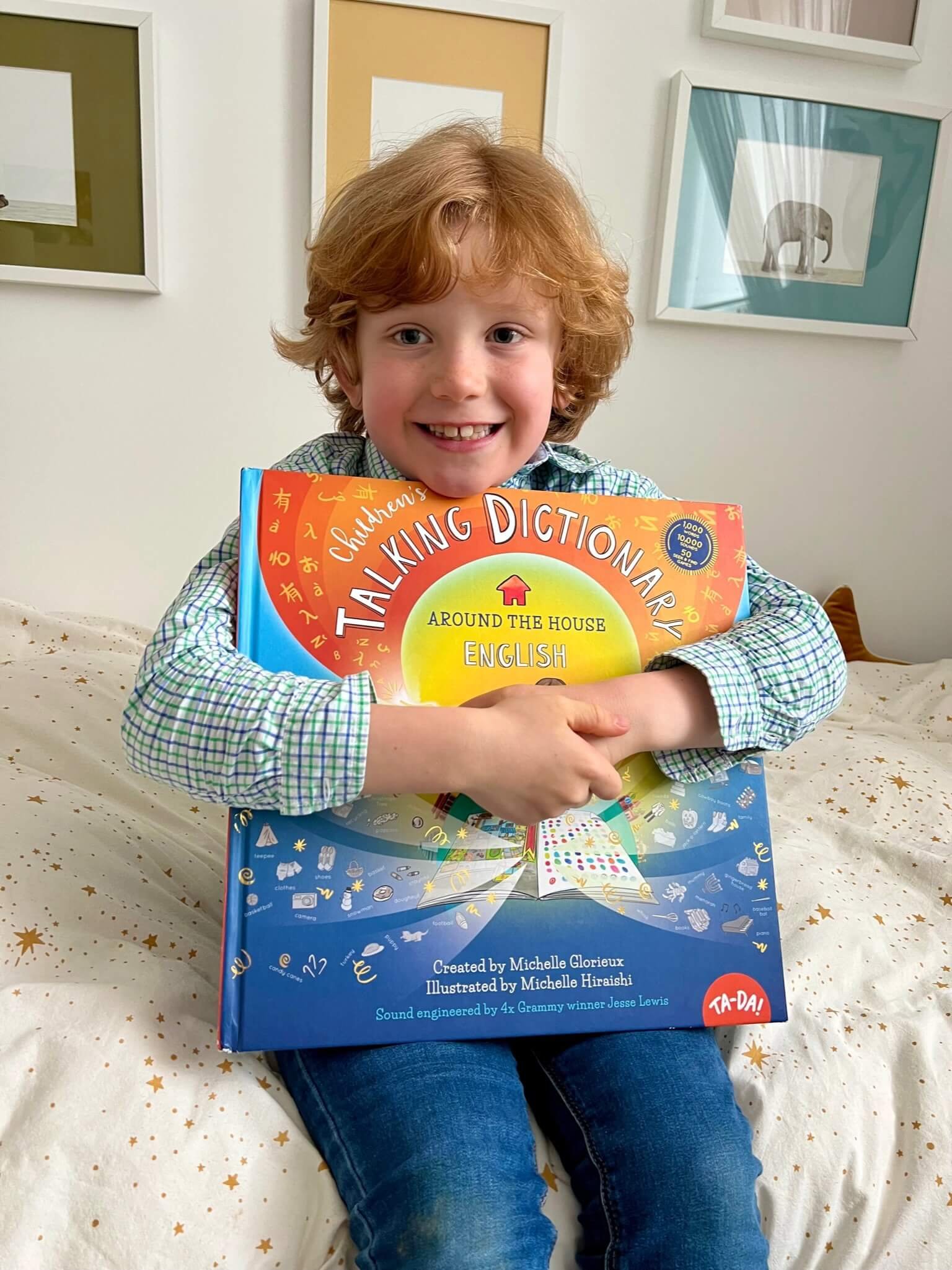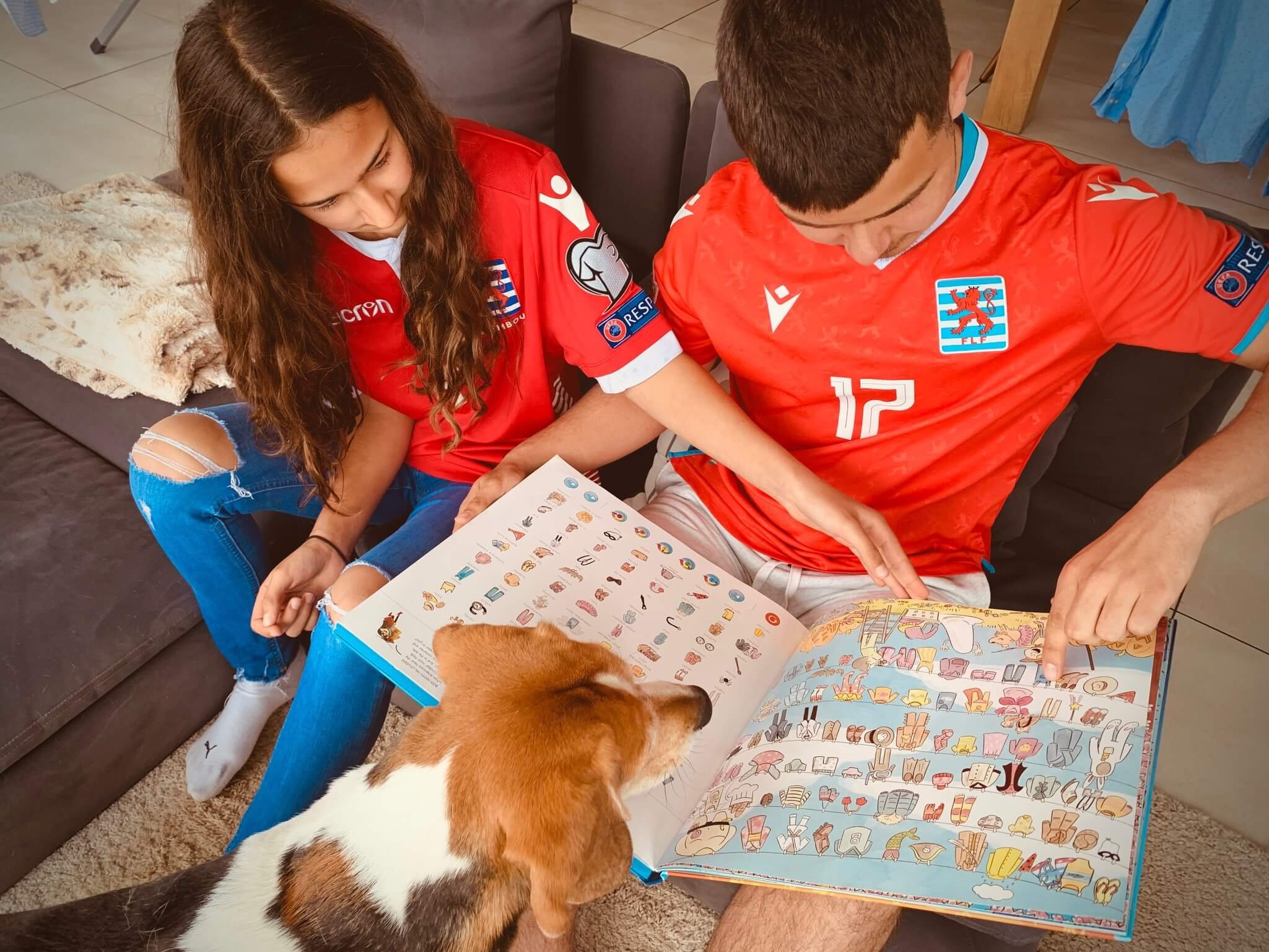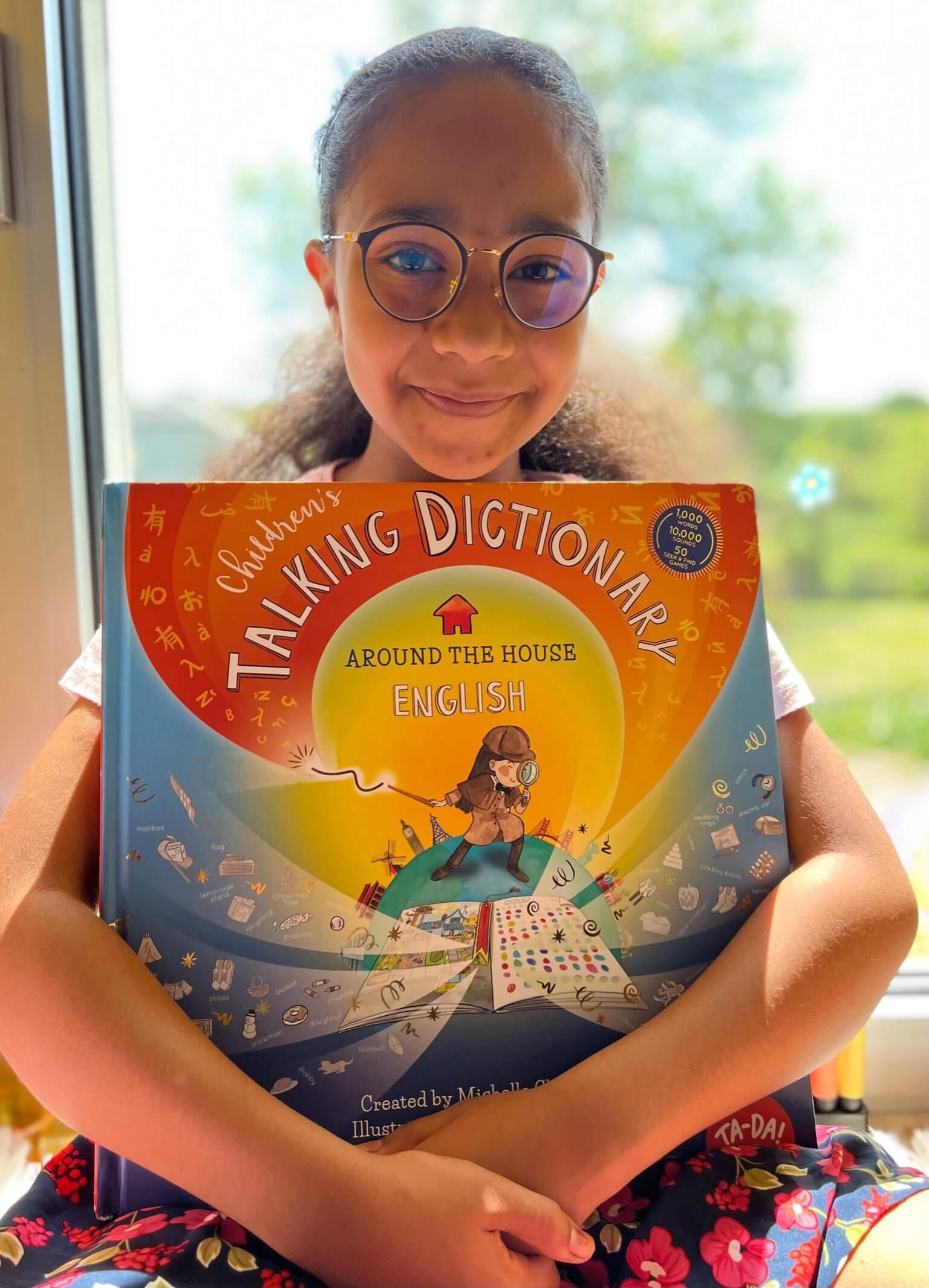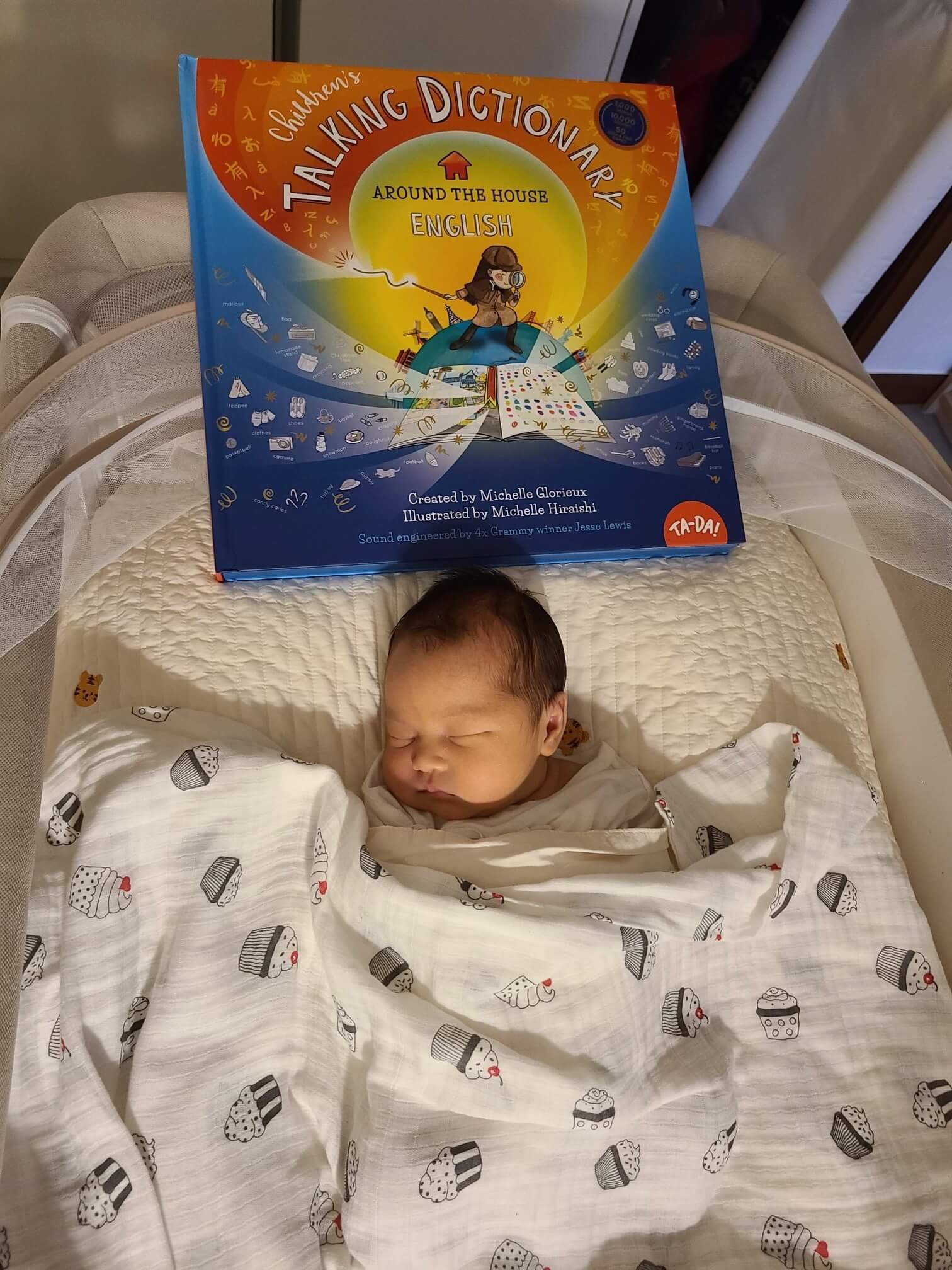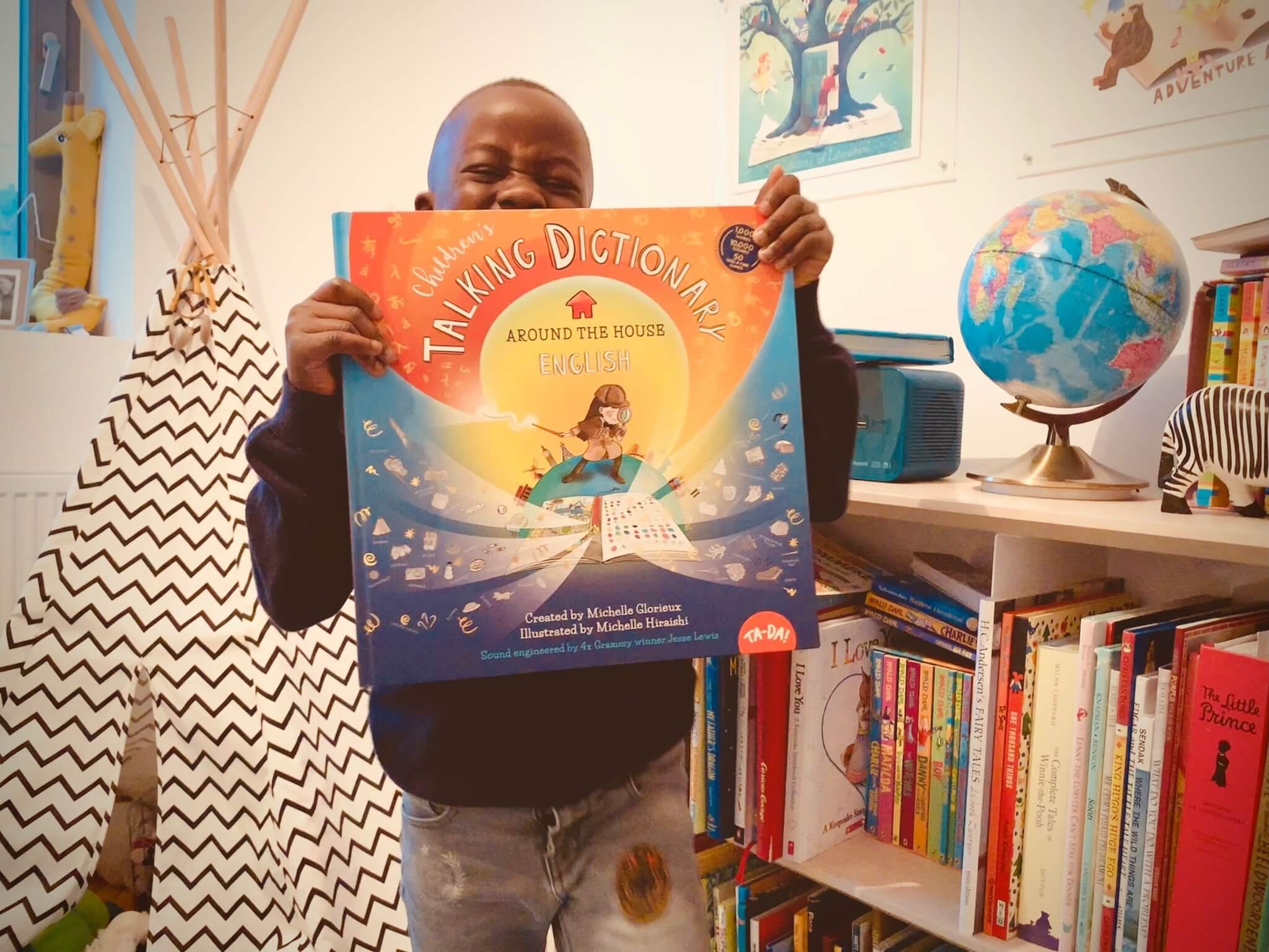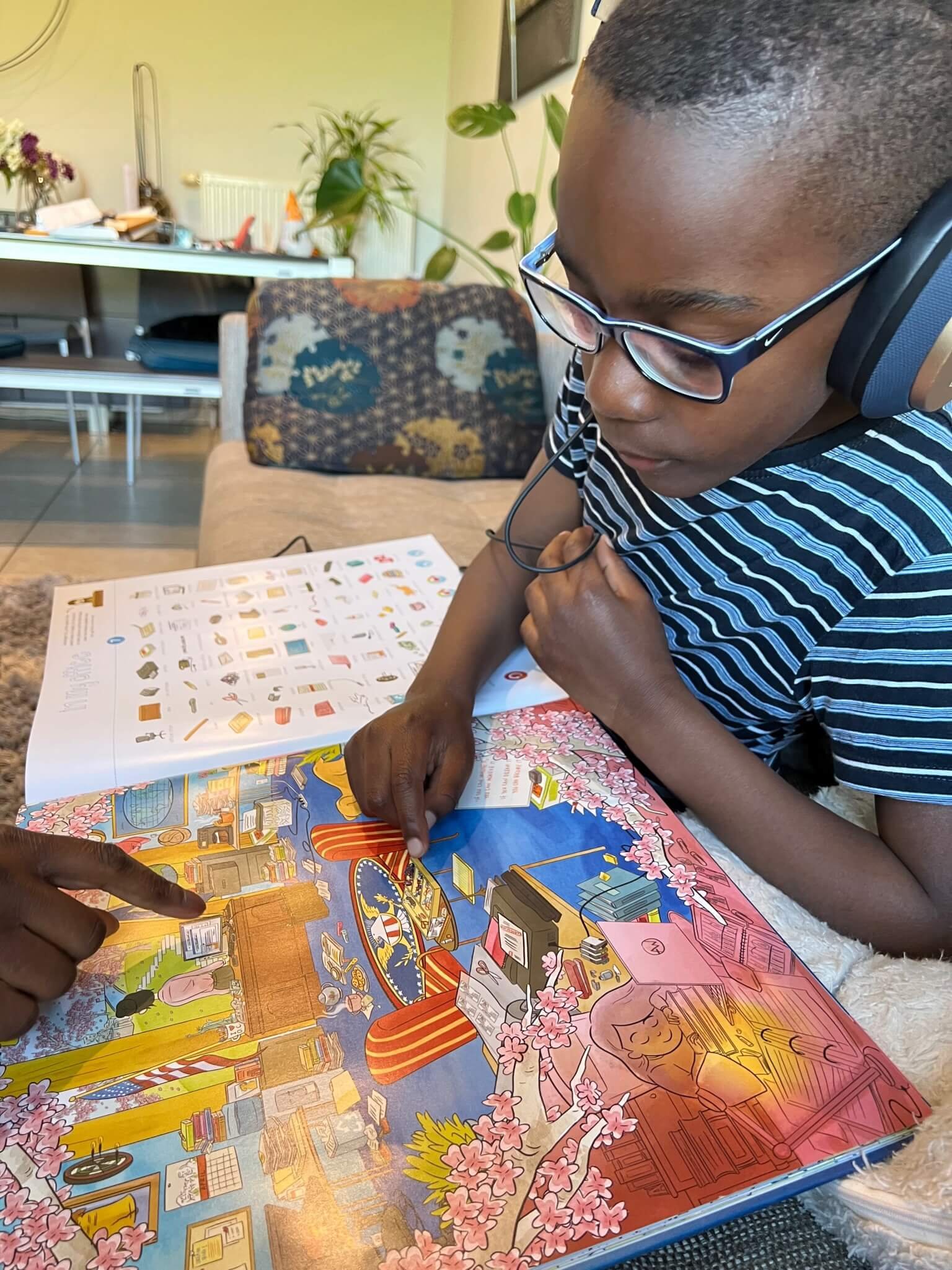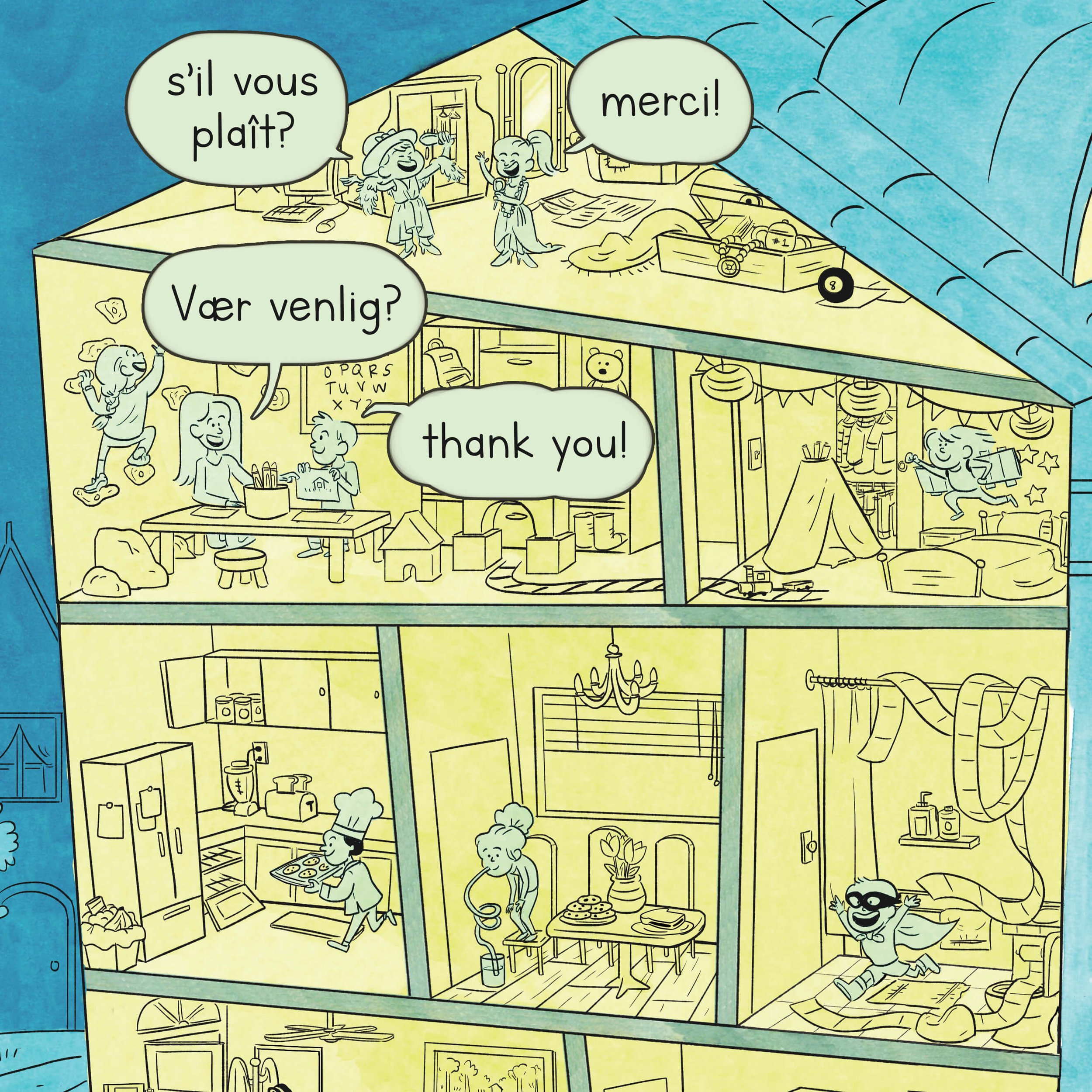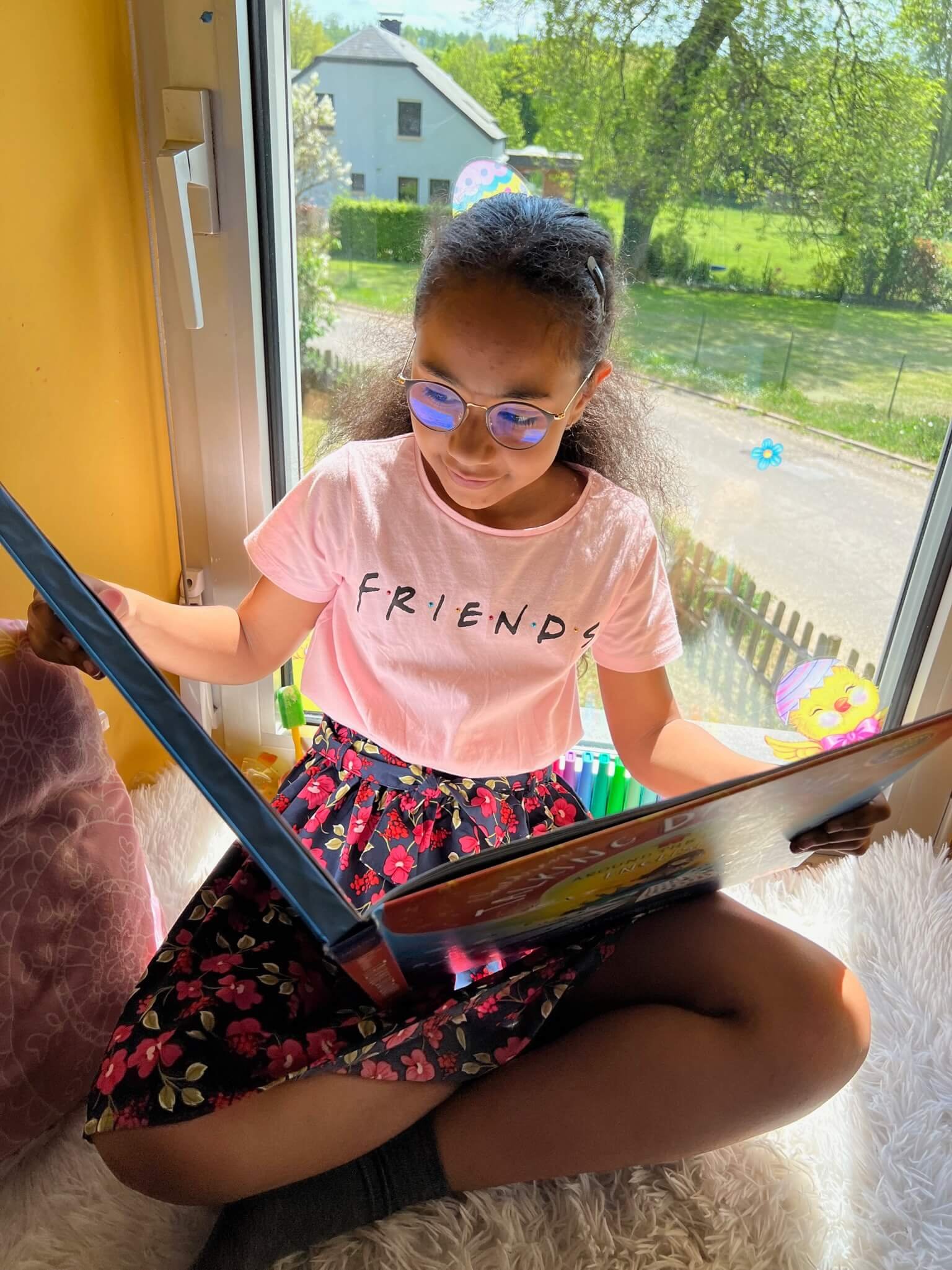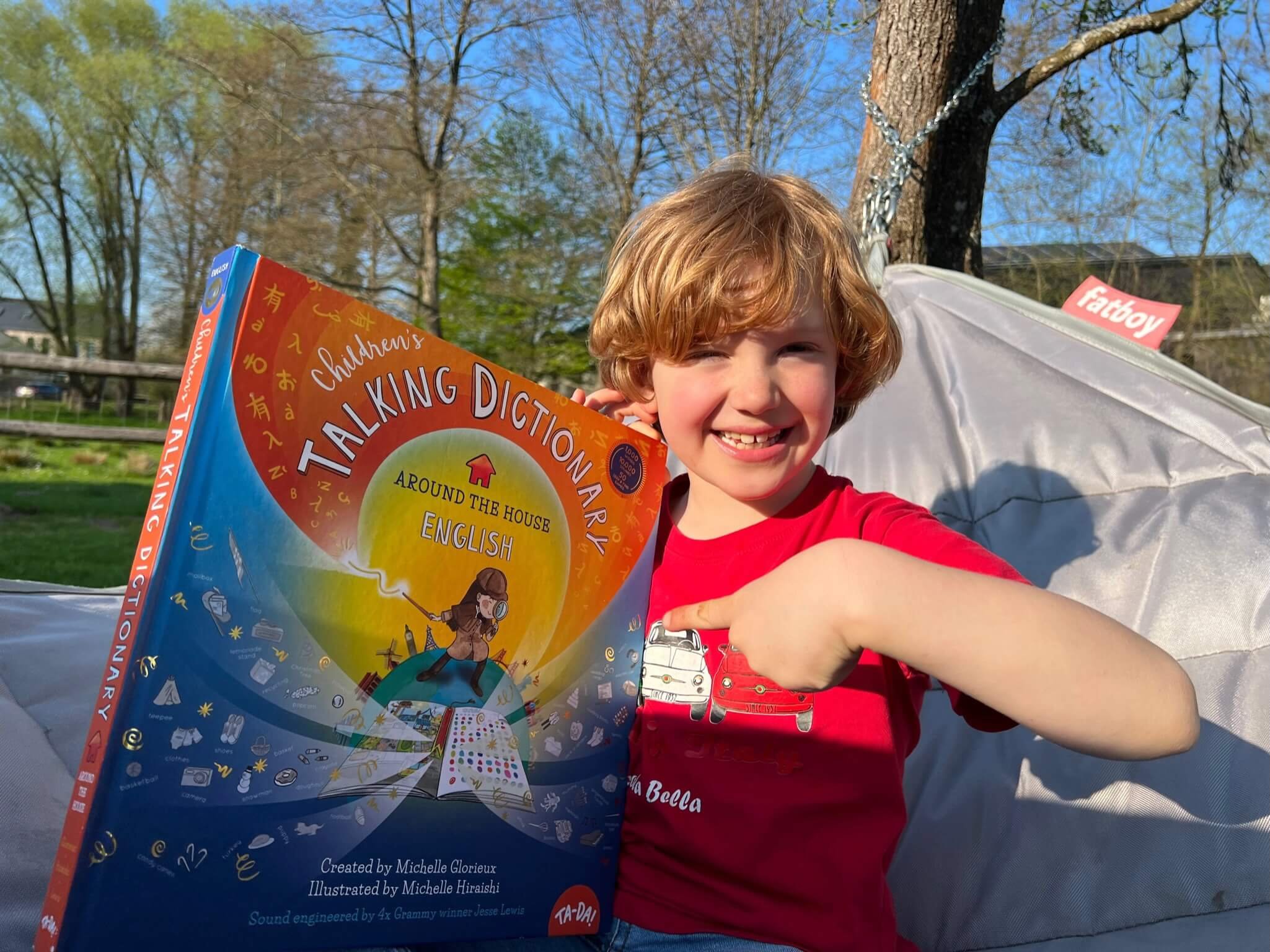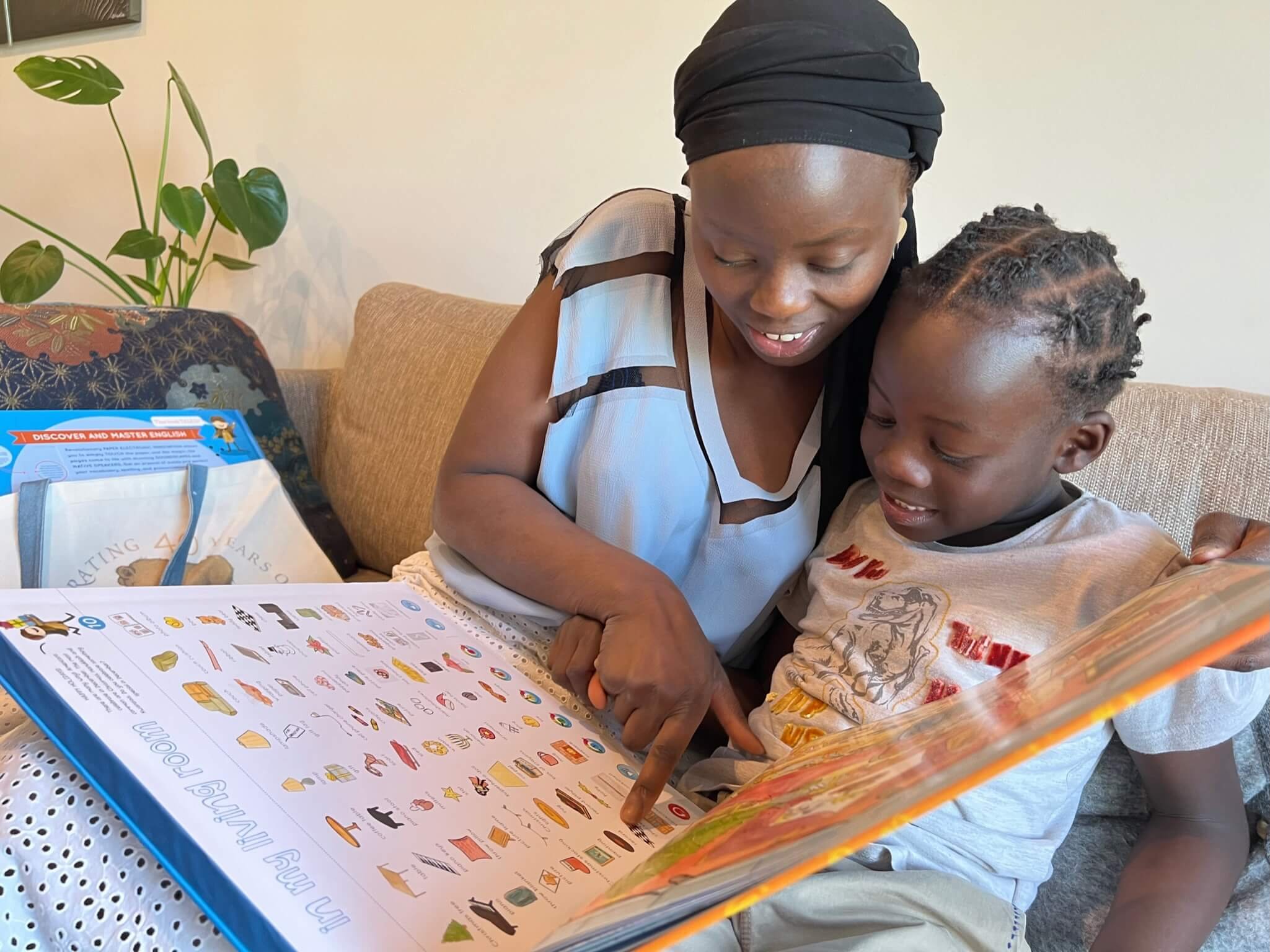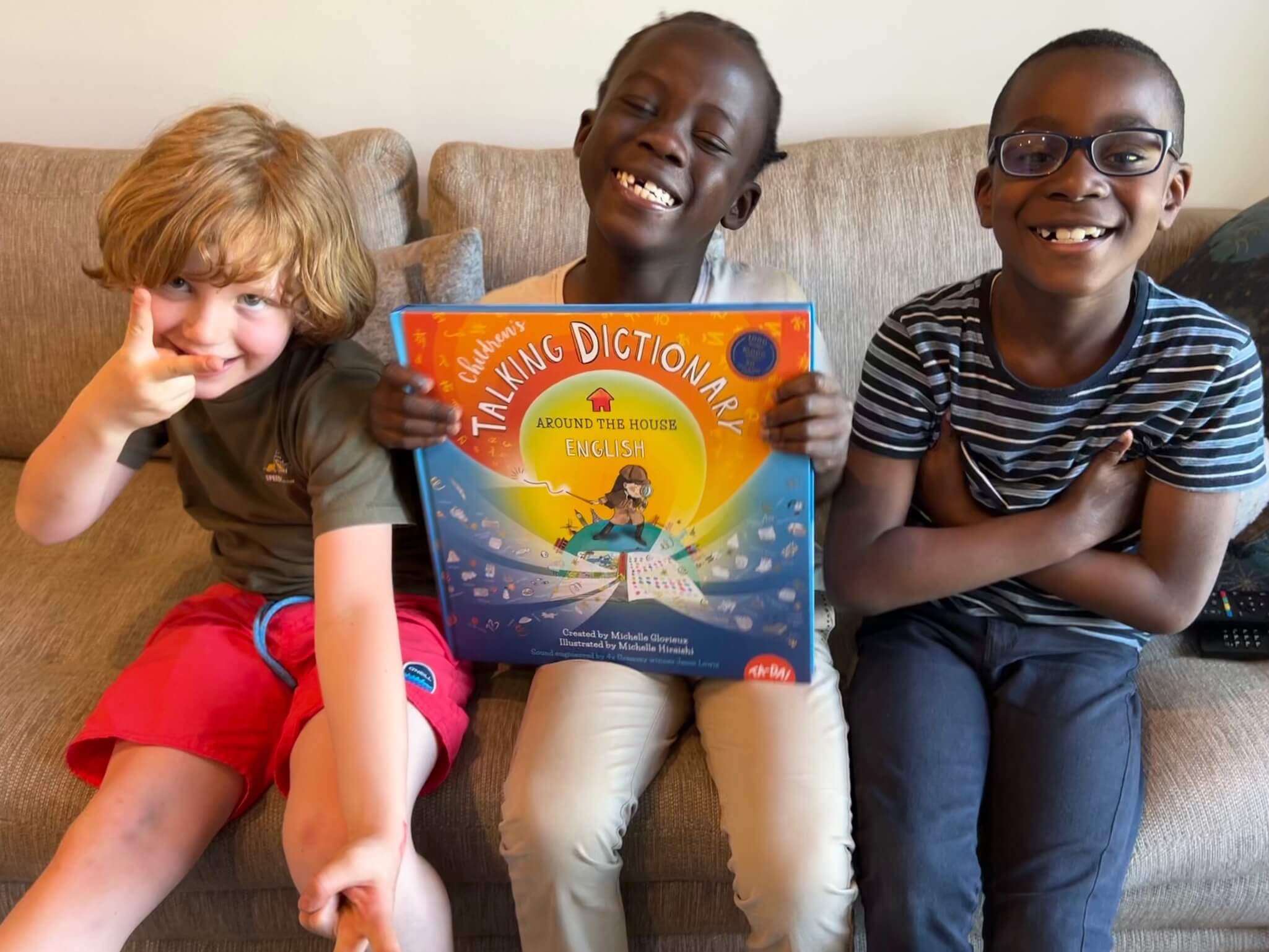The Power of Vocabulary: Why it Should Be Center Stage in Second Language Learning
My son's first steps in China, embodying our family's love for languages and global exploration.
Unleashing Language Potential: The Untold Power of Vocabulary in Language Learning
In today’s interconnected world, mastering a second language is more than a classroom elective—it's a passport to global citizenship. Yet, amidst various language learning tools and methods, one crucial component often remains overshadowed: vocabulary.
Me - imparting language skills to eager students in Ethiopia.
I’d like to share why giving vocabulary a front-row seat in the language learning journey is not just wise; it's imperative.
Having founded TA-DA! Language Productions, seen the struggles and triumphs of language learners both as an educator all over the world and as a parent (of a multilingual), I've realized the indispensable role vocabulary plays in true language comprehension.
This realization is punctuated with personal anecdotes, experiences, and extensive research, all culminating into a game-changing tool we've developed. But first, let's explore the heart of the matter.
The Complex Role of Foreign Language Learning
Vocabulary provides a strong anchor in the vast sea of language learning.
As a teacher, I've witnessed the vulnerability that often accompanies language learning. New phonetic patterns, unfamiliar mouth movements, and foreign sounds can make it feel like stepping onto a stage.
But the game changes when words become allies. By infusing ample vocabulary into lessons, we eradicate the shadows of uncertainty, fostering confidence and empowerment. Words can act as anchors, guiding kids with confidence through the intricate sea of language learning.
The Vocabulary Advantage
Let's embrace the fact: all language begins with words. Whether it's your first language or your fifth, words are our primary tool for communication. Linguist David Wilkins once noted, “Without grammar very little can be conveyed, without vocabulary nothing can be conveyed.”
And isn't that the truth?
Our experiences, from traveling to everyday interactions, hinge on the words we know.
A rich vocabulary not only enables clear communication but serves as a foundation upon which all other language skills are built.
Linguist Keith Folse shared a poignant anecdote that resonates universally.
Attempting to buy flour in Japan without knowing the word "flour" in Japanese, he found himself at a loss, despite his grammatical prowess.
This experience embodies the truth that vocabulary is the linchpin of comprehension and connection, highlighting why travelers often reach for pocket dictionaries rather than grammar books.
But let's delve deeper. Vocabulary isn't just a destination; it's the vessel that propels you toward fluency. The more words you know, the more you're poised to grasp from every interaction.
Vocabulary fuels listening, speaking, reading, and writing—it paves the way for comprehensive language proficiency.
Paul Nation, a revered linguist, aptly observed, "Vocabulary is not an end in itself. A rich vocabulary makes the skills of listening, speaking, reading, and writing easier to perform."
The profound implication is that a robust vocabulary serves as a scaffold, enabling learners to scale higher levels of language fluency and expression.
Confidence: The Catalyst of Fluency
My son taking charge in Hong Kong, representing the power of communication through language.
Language acquisition, at its core, mirrors the act of stepping onto a stage. New muscles are utilized, new sounds emerge, and a sense of self-consciousness looms large, especially for children navigating the world of their peers.
Children thrive on competence.
They gravitate towards subjects where they excel, where they shine brightest.
But imagine the challenge of learning a language where you understand nothing, struggle to articulate, and feel as intelligent as a doorknob.
In my immersive language classes, I've seen children withdraw when they can't grasp the content.
But here's where the magic unfolds: the introduction of words—coupled with play and interactivity—breathes life into their journey. Words become more than vocabulary; they become beacons of confidence.
As parents and educators, we at TA-DA! recognize that confidence is the silent catalyst that propels language learners towards fluency.
Imagine the transformation when a child hears, touches, and visualizes new words.
The veil of uncertainty lifts, replaced by the glow of empowerment.
A child who once felt adrift in unfamiliar linguistic waters now strides confidently, ready to navigate conversations and explore the world of language.
Creating confident, playful, and vocabulary-rich learners in one of my classes in South Korea.
1000 Words: The Gateway to Conversation
My former students all grown: From kindergarteners to confident English conversationalists. The power of a strong vocabulary foundation!
Did you know that 1000 carefully selected words are all it takes for your child to embark on conversations in a new language?
It might sound astounding, but it's true.
Imagine your child confidently navigating foreign lands, engaging in heartwarming conversations, and unlocking the door to an entire world of experiences.
This is the magic that lies within the grasp of our children.
The universal belief suggests that 100 words enable basic conversations, while 1,000 words unlock the gateway to fluid interaction.
Vocabulary is the bedrock upon which the edifice of language proficiency stands.
It's the compass that guides learners through the labyrinth of linguistic landscapes.
Unfortunately, this crucial element often receives less emphasis than it deserves in language curricula, resulting in vocabulary enriching tools being pretty much non-existent.
Even in countries celebrated for their linguistic diversity, such as Luxembourg where I lived the last decade, children continue to search for words and native pronunciations online, plugging them in Google one by one in order to hear native pronunciation. Really?
Our family's journey with TA-DA! – reinventing language learning methods for the modern age.
It’s high time we make it easier to acquire new languages and provide the tools we know are needed to excel, while relishing every moment of the journey, confidently.
This belief, coupled with my multicultural experiences and a commitment to meaningful language learning tailor made for our kids and their unique needs (although parents write me daily how our products have changed their language learning journeys too!), led me to create TA-DA! Language Productions—a platform dedicated to immersive, multi-sensory language learning through our innovative talking books - and specifically in honor of the power of vocabulary, paved the way for the inception of TA-DA!'s Children's Talking Paper Dictionary.
TA-DA!'s Talking Paper Dictionary: Revolutionizing Vocabulary Acquisition
Picture this: a multi-sensory journey where each word isn’t just seen or heard, but felt. That’s the magic TA-DA! brings. It’s not merely a dictionary—it’s an immersive linguistic experience and the next best thing to being able to travel and live in a new country. Here’s what sets it apart:
A class fully engaged with TA-DA!'s talking dictionary, turning learning into a fun group activity.
Visual & Auditory Learning: Each volume contains 1000 vivid images alongside words. A simple touch of your finger to the pages of the book and TA-DA!, hear the word come alive in crisp, high-definition audio. (There’s nothing like it!)
Authentic Experience: Words are voiced by dozens of different native speakers, introducing learners to diverse, real-world pronunciations.
Gamified Exploration: Vocabulary learning becomes an adventure with 50 seek-and-find games developed in collaboration with industry experts like Joe Shochet of codeSpark who ensures our paper based edtech products respond to touch like his apps, minus the screen.
Cultural Immersion: Words are curated thematically, offering insights into their cultural contexts, ensuring both linguistic and cultural literacy.
Innovative Sound: Leveraging the expertise of a multi-Grammy award-winning team, we offer unparalleled sound clarity. (Did you know a producer of Lady Gaga, Shakira, Beyonce, Michael Jackson and more recently joined this mama-teacher created startup to help make real impact? Learn more here - and meet him, and the team and our story on our About Page.
Designed for Independence and Collaboration: While perfect for individual exploration, an integrated headphone jack and external speaker compatibility mean it’s ready for group sessions too - families and classrooms alike learn together, playing the talking dictionary like your favorite board game.
Randomized Learning: Through randomized word presentation and interactive gameplay, we shift from rote memorization to deep comprehension.
Portability and Independence: Unlike digital tools that rely on electricity or battery power, TA-DA!'s talking paper dictionary is uniquely transportable. Children (and their adults) can slip this magical book into their bags and carry the joy of language wherever they roam—no power outlets required. The freedom to practice anytime, anywhere, without the potential judgment of peers, ensures uninterrupted and self-paced learning. It’s truly language learning tailored to the heart's delight.
Unlock the power of language with TA-DA!'s talking dictionary. Dive into its features!
(Pssst. For those curious about the benefits of tactile, non-digital learning tools in a child's development, our blog post, ["Why Paper? : Nurturing Children's Development in a Digital Age"], delves into the significance of paper and other tangible tools in this digital era. It emphasizes the value of real-world experiences and the unmatched potential of tangible materials in nurturing children's development.)
Take Center Stage in the World of Language
Vocabulary is the heart of language, and TA-DA!'s children's talking paper dictionary ensures your journey is easy and rewarding. Just as an actor feels more confident with a script in hand, language learners thrive with the right tools. The TA-DA! Talking Dictionary is that reliable script, guiding you through each scene of your linguistic journey. With every page turn, you're not just learning words; you're gaining the confidence to step into new conversations and roles. Embrace the journey, knowing TA-DA! is there to support every word and every step forward.
Further Reading:
Alqahtani, Mofareh. (2015). The importance of vocabulary in language learning and how to be taught. International Journal of Teaching and Education, III(3), 21-34. DOI.
Webb, S., & Nation, I. S. P. (2017). How Vocabulary is Learned. Oxford University Press.
Folse, K. S. (2004) Myths about Teaching and Learning Second Language Vocabulary: What Recent Research Says. TESL Reporter.
Folse, K. S. (2011). Improving Grammar Teaching in the English Language Classroom. TESOL.
Khan, Raja Muhammad Ishtiaq. (2018). The Role of Vocabulary Knowledge in Speaking Development of Saudi EFL Learners. Arab World English Journal, 9(1), 406-418. DOI.
Laufer, B., & Nation, I. S. P. (2019). Vocabulary Size and the Skills of Listening, Reading, Writing and Speaking. Language Teaching Research.
Nation, I. S. P. (2013). Learning Vocabulary in Another Language. Cambridge University Press.
Schmitt, N., Jiang, X., & Grabe, W. (2011). The Percentage of Words Known in a Text and Reading Comprehension. Modern Language Journal.
Milton, J. (2009). Measuring Second Language Vocabulary Acquisition. Multilingual Matters.
Ellis, R., & Shintani, N. (2013). Exploring Language Pedagogy through Second Language Acquisition Research. Routledge.
Unlock the TA-DA! Revolution
Join us on this remarkable journey towards your own standing ovation. Let the TA-DA! Talking Dictionary become your child's gateway to language and culture, unlocking a world of confidence, understanding, and boundless opportunities. Embrace the future, where children are no longer confined by language barriers, and families can connect across linguistic landscapes. TA-DA! is more than a tool—it's the anthem of a new era in language learning. Welcome to a world where language is within reach, a world where every touch is a spark of magic. Experience the TA-DA! revolution today!
For parents striving to offer their children meaningful experiences that go beyond screens and gadgets, our blog [“No Screens Before Age 5: Crafting a Meaningful Childhood in the Digital Era”] dives deep into why and how a screen-free early childhood can make a world of difference.
Delve further and hear from our CEO, Michelle Glorieux in the short video below:
A personal note from Michelle, TA-DA!'s CEO, on our mission to transform language learning.










